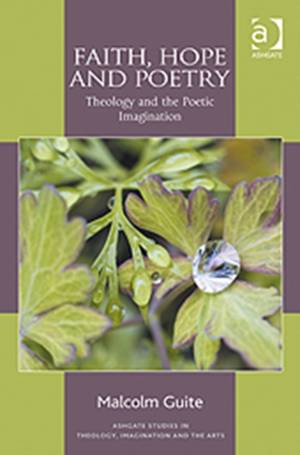
- Afhalen na 1 uur in een winkel met voorraad
- Gratis thuislevering in België vanaf € 30
- Ruim aanbod met 7 miljoen producten
- Afhalen na 1 uur in een winkel met voorraad
- Gratis thuislevering in België vanaf € 30
- Ruim aanbod met 7 miljoen producten
Zoeken
€ 85,45
+ 170 punten
Uitvoering
Omschrijving
Faith, Hope and Poetry explores the poetic imagination as a way of knowing; a way of seeing reality more clearly. Presenting a series of critical appreciations of English poetry from Anglo-Saxon times to the present day, Malcolm Guite applies the insights of poetry to contemporary issues and the contribution poetry can make to our religious knowing and the way we 'do theology'. This book is not solely concerned with overtly religious poetry, but attends to the paradoxical ways in which the poetry of doubt and despair also enriches theology. Developing an original analysis and application of the poetic vision of Coleridge, Larkin and Seamus Heaney in the final chapters, Guite builds towards a substantial theology of imagination and provides unique insights into truth that complement and enrich more strictly rational ways of knowing. Readers of this book will return to their reading of poetry equipped with new insights and enthusiasm and will be challenged to integrate imaginative ways of knowing into their other academic and intellectual pursuits.
Specificaties
Betrokkenen
- Auteur(s):
- Uitgeverij:
Inhoud
- Aantal bladzijden:
- 272
- Taal:
- Engels
- Reeks:
Eigenschappen
- Productcode (EAN):
- 9781409449362
- Verschijningsdatum:
- 28/03/2012
- Uitvoering:
- Paperback
- Formaat:
- Trade paperback (VS)
- Afmetingen:
- 155 mm x 229 mm
- Gewicht:
- 430 g

Alleen bij Standaard Boekhandel
+ 170 punten op je klantenkaart van Standaard Boekhandel
Beoordelingen
We publiceren alleen reviews die voldoen aan de voorwaarden voor reviews. Bekijk onze voorwaarden voor reviews.











